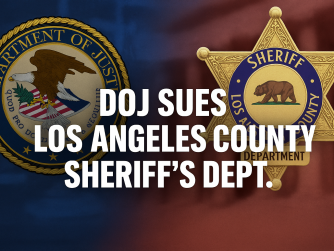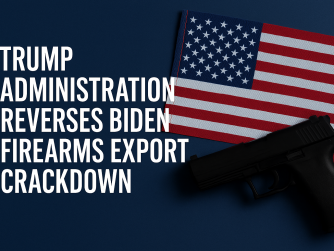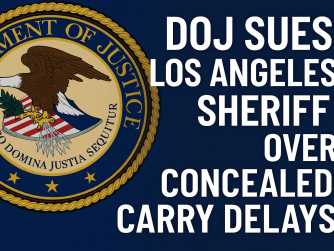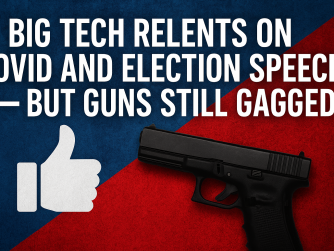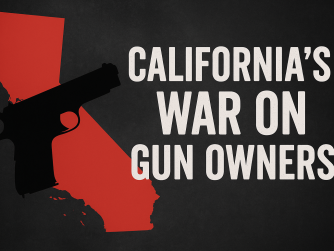The United Nations’ newly adopted Global Framework on Through-Life Conventional Ammunition Management may sound like a technical initiative to secure stockpiles and prevent illicit trafficking. But behind the diplomatic language and acronyms lies a serious threat to the constitutional freedoms of American citizens—specifically, their Second Amendment rights.
From June 23–27, global delegates gathered in New York for the first formal meeting of the Framework, an initiative launched by the UN Office for Disarmament Affairs (UNODA) and shaped by the UN’s Open-Ended Working Group on Conventional Ammunition. While its stated purpose is to “enhance the safety and security of ammunition under government control,” the process revealed deeper intentions: expanding the UN’s influence over civilian ammunition markets—and by extension, undermining national sovereignty, particularly that of the United States.
UN Creep: Civilian Ammunition in the Crosshairs
One of the most brazen moves came in the final hours of the conference, when Mexico’s delegation tried to sneak in language that would push for ammunition marking requirements not limited to military stockpiles, but “in line with” the Framework’s objectives. This subtle linguistic shift was no accident. It would have created a loophole—a gateway to regulating every single round of civilian ammunition.
In practice, this would subject U.S. manufacturers, hunters, sportsmen, and recreational shooters to global oversight: marking, tracing, and recordkeeping requirements dictated not by Congress or American voters, but by international bureaucrats. If you think this sounds like a backdoor gun registry—on a global scale—you’re not wrong.
U.S. Delegation Fights Back
To its credit, the United States delegation recognized the danger. Despite silence from supposed allies, American diplomats fought to exclude these overreaching provisions from the final report. They insisted that the Framework remain focused on government-held stockpiles and blocked any language that would implicate civilian ammunition.
That battle was hard-fought, especially against the backdrop of a UNODA Secretariat stacked with anti-gun activists posing as neutral advisors. These “experts”—unnamed, unaccountable, and ideologically motivated—worked behind the scenes to blur the line between national defense and civilian disarmament.
The situation is made worse by the creation of a Group of Governmental Experts, who will continue shaping the Framework in so-called “intercessional” meetings—i.e., secret gatherings with minimal oversight. The UN has identified 116 unnamed experts to support this body, raising serious concerns about who is influencing policy and with what agenda.
Not-So-Global Consensus
Russia’s total disassociation from the Framework is further proof that the UN’s effort is anything but “global.” In its statement, Russia condemned the inclusion of “gender perspectives” in what should be a technical framework and denounced the UN’s disregard for legitimate concerns. Whether or not one agrees with Russia’s reasoning, their departure underscores the lack of true consensus.
Why It Matters to U.S. Citizens
Make no mistake: what happens at the UN does not stay at the UN. These political instruments often resurface in domestic policy proposals, trade negotiations, and even court decisions. The danger is not just theoretical—it’s procedural. Bit by bit, “soft law” becomes de facto policy, and international guidelines become regulatory nooses around American liberties.
The National Rifle Association (NRA) remains the only U.S.-based user group present at these negotiations and continues to monitor developments. Thanks to their efforts and the diligence of the U.S. delegation, the worst proposals were kept at bay—for now.
What Comes Next
The next formal meeting of the Framework won’t happen until 2027, but intercessional work—informal sessions, technical consultations, and working groups—will continue in the meantime. This is where vigilance is critical. As history shows, the most radical proposals often gain ground not in public debate, but in quiet, bureaucratic corridors.
Supporters of the Second Amendment must stay alert. Today’s UN ammunition framework is tomorrow’s federal regulation. Today’s international “expert” is tomorrow’s policy advisor. And today’s harmless-sounding technicality could be the next assault on American gun ownership.
The NRA and like-minded organizations will continue to advocate, inform, and resist globalist efforts to circumvent the U.S. Constitution through international lawfare. But they can’t do it alone. The battle for liberty is no longer just in Congress or the courts—it’s now being fought in international conference rooms, and we must show up.


